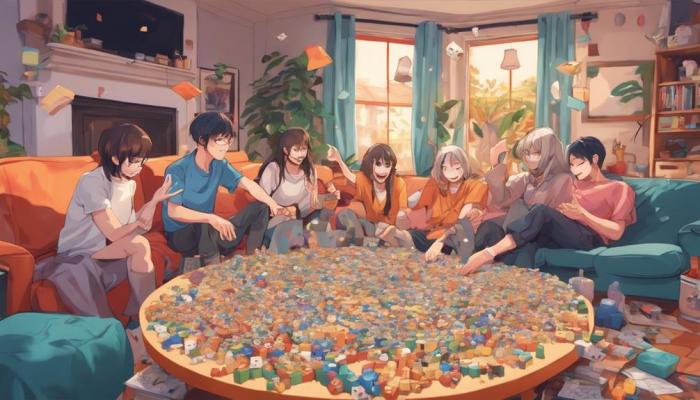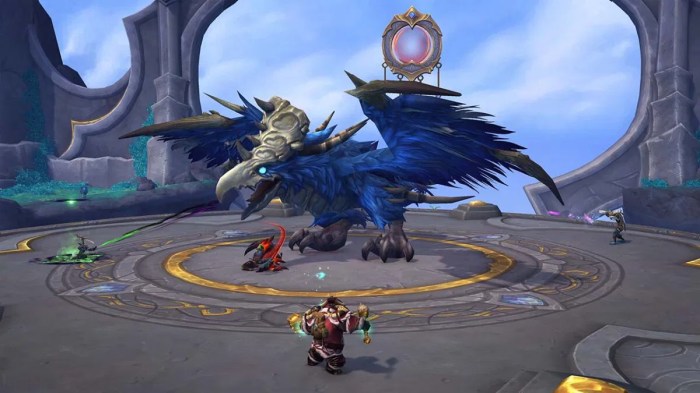
Introduction to Online Gaming for Social Connections
Online gaming has evolved significantly over the years, transforming from solitary experiences to vibrant social platforms that foster connections among players worldwide. Social connections in online gaming are crucial as they enhance player engagement, create a sense of belonging, and provide opportunities for shared experiences. The landscape of online gaming now encompasses a variety of genres, all designed to facilitate interactions, ranging from cooperative missions to competitive environments.
As technology has advanced, the social aspect of gaming has shifted, emphasizing community and collaboration in ways that were once unimaginable.
Types of Online Games that Promote Socialization

Different genres of online games play a pivotal role in promoting social interactions, each offering unique features that cater to various player preferences.
- MMORPGs (Massively Multiplayer Online Role-Playing Games): These games allow thousands of players to inhabit the same virtual world, encouraging collaboration and socializing. Titles like
-World of Warcraft* and
-Final Fantasy XIV* are prime examples where players join guilds, complete quests together, and build lasting friendships through shared adventures. - Social Simulators: Games such as
-The Sims* series and
-Animal Crossing* focus on life simulation and community building. These games promote interactions through in-game events and activities, allowing players to visit each other’s virtual homes and participate in social gatherings. - Battle Royale Games: Titles like
-Fortnite* and
-Apex Legends* foster teamwork through squad-based gameplay, where players must work together to be the last team standing. Communication tools like voice chat enhance the collaborative experience, making it essential to strategize and execute plans effectively.
The Role of Community in Online Gaming
Community is the backbone of the online gaming experience, significantly enhancing enjoyment and engagement. A strong community can transform a good game into a great one, providing players with a network of support and shared passion.
- World of Warcraft: Known for its expansive player base and rich lore, it features numerous community-driven events, including raids and in-game festivals that bring players together.
- Destiny 2: This game encourages players to form fireteams for raids and strikes, fostering cooperation through shared challenges and objectives.
- League of Legends: With its ranked play and tournaments, this game has a thriving community that engages through forums, live streams, and social media, facilitating connections between players.
Community events and gatherings, both in-game and offline, play a significant role in strengthening player connections. Events like game launch parties or fan conventions provide opportunities for players to meet face-to-face, further solidifying friendships formed online.
Building Friendships Through Gameplay
Players can build meaningful friendships through various activities in online games. Engaging with others in cooperative missions, participating in community events, or simply chatting during gameplay can lay the foundation for lasting relationships. To initiate and maintain friendships, players can:
- Join clans or guilds that align with their interests.
- Participate in voice chat during games to enhance communication.
- Organize in-game events, like tournaments or casual hangouts, to foster camaraderie.
In-game activities such as cooperative challenges, shared achievements, and friendly competitions create a natural environment for players to bond and build trust.
The Impact of Online Gaming on Real-Life Social Skills

Online gaming serves as a valuable platform for enhancing real-life social skills. As players engage in multiplayer games, they develop essential communication and teamwork abilities that can translate into their daily lives.Games that particularly aid in developing these skills include:
- Overwatch: This team-based shooter requires players to communicate strategies and coordinate their roles effectively, fostering teamwork.
- Among Us: Players must engage in discussions to identify impostors, honing their conversational skills and encouraging critical thinking.
- Monster Hunter: World: Players collaborate to take down formidable monsters, necessitating clear communication and cooperation.
Research indicates that players often experience improved social interactions outside the gaming realm due to their online experiences, enhancing overall social competence.
Safety and Etiquette in Online Gaming Communities
Maintaining safety in online gaming communities is essential for fostering positive interactions. Players must be aware of potential risks and take proactive measures to protect themselves while enjoying social gaming.Key points of gaming etiquette include:
- Respect other players and their boundaries.
- Engage in constructive communication, avoiding toxicity and harassment.
- Report negative behaviors to game moderators or support teams to maintain a healthy community atmosphere.
Handling conflicts gracefully and understanding the platform’s rules can significantly contribute to a more positive gaming experience for everyone involved.
Future Trends in Online Games and Social Connections
Emerging trends in online gaming are poised to further enhance social connections among players. The rise of virtual reality (VR) and augmented reality (AR) technologies promises to create immersive environments where players can interact more naturally.For instance, titles like
- VRChat* and
- Rec Room* allow players to socialize in virtual spaces, offering experiences that mimic real-life interactions. As technology advances, the potential for deeper connections within gaming communities will expand, creating opportunities for players to form bonds in ways that were previously unimaginable.
The ongoing development of cross-platform gaming is also likely to bridge communities, allowing friends on different consoles or devices to connect seamlessly. These innovations are set to redefine how players socialize, game, and build connections in the digital world.

